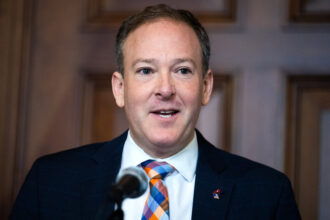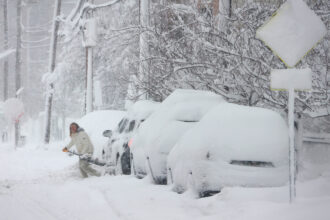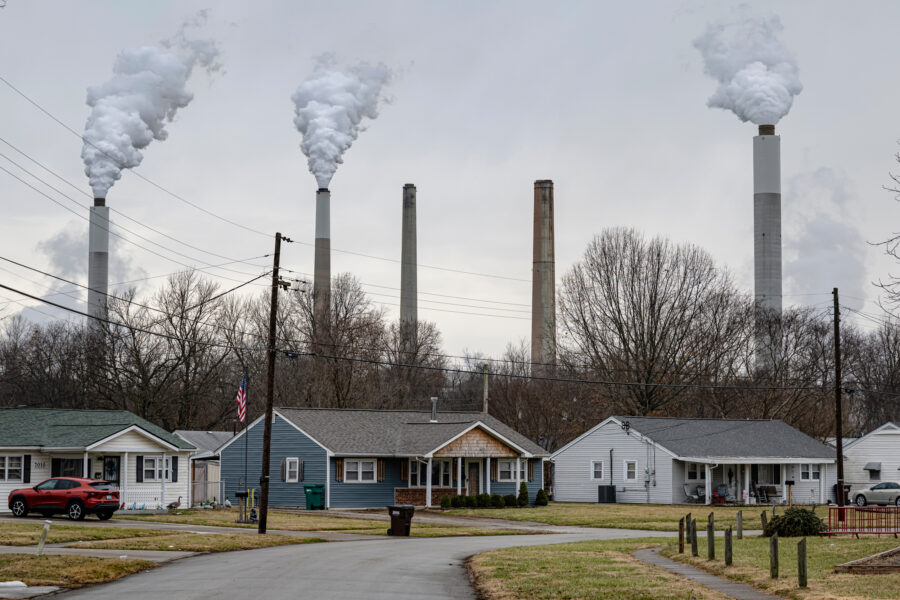The Trump administration will have another opportunity to argue in court that it has the constitutional authority to freeze hundreds of millions of dollars in funding granted by Congress, in a case brought by nonprofit groups and municipalities that were to be beneficiaries of the money.
Judge Richard Gergel, a U.S. District Court judge for the District of South Carolina, opted Wednesday during a hearing in Charleston to give the administration seven days to produce additional documents supporting the pause on the funds. The judge also ordered the administration not to refreeze funds that were put on hold and subsequently released.
The litigation, initially filed on March 19, argues President Donald Trump’s executive orders stopping the congressionally mandated funding represent an “unlawful interference by the executive branch” and also violate the First Amendment, which protects free speech. The case was filed by the Southern Environmental Law Center and Public Rights Project on behalf of 11 nonprofit groups and six municipalities from Baltimore to San Diego. Two additional groups were later added as plaintiffs to the litigation.
“The judge went out of his way to talk about how these are groups that are just hard-working groups trying to serve the public interest and trying to serve their communities,” said Kym Meyer, litigation director at the Southern Environmental Law Center and lead attorney on the case. “In the meantime, the communities they serve are being impacted.”
The case centers on three executive orders, including one entitled “Unleashing American Energy,” aimed at stopping money designated under the Infrastructure Investment and Jobs Act and Inflation Reduction Act, which provided historic levels of funding for climate change and clean energy initiatives. The other executive orders cited in the litigation are “Ending Radical and Wasteful Government DEI Programs and Preferencing” and “Implementing the President’s ‘Department of Government Efficiency’ Cost Efficiency Initiative.”
In addition to the president, the litigation names as defendants several administration leaders and departments, including the Environmental Protection Agency, the U.S. Department of Agriculture, the U.S. Department of Transportation and the Trump initiative to slash spending, the Department of Government Efficiency. The EPA and USDA declined to comment on the pending litigation. The USDA referred Inside Climate News to the Justice Department, which did not immediately respond to a request for comment.
Among the plaintiffs is Pasa Sustainable Agriculture, a nonprofit serving farmers in the mid-Atlantic and Northeast regions. The organization had been awarded a grant of more than $59 million under the Inflation Reduction Act to help more than 20,000 small and mid-sized underserved farmers implement conservation practices and reduce greenhouse gas emissions.
The farmers had just begun the practices when the Trump administration paused the funding, said Hannah Smith-Brubaker, executive director of the group. The organization has been forced to reimburse farmers and contractors for work already completed with rainy day funds and faces the prospect of a large pay-out to 60 employees for unemployment claims. It also has struggled to secure alternative funding from banks because of the uncertainty.
“This money came about as a result of USDA realizing they were not reaching a whole segment of the farming population,” Smith-Brubaker said. “Now the worst possible thing has happened, where we asked these farmers to trust us and trust the USDA, and that trust for farmers who already didn’t trust the USDA has been broken. … Now, to me, it just says the USDA doesn’t consider these farmers to be, I don’t know, real farmers.”
About This Story
Perhaps you noticed: This story, like all the news we publish, is free to read. That’s because Inside Climate News is a 501c3 nonprofit organization. We do not charge a subscription fee, lock our news behind a paywall, or clutter our website with ads. We make our news on climate and the environment freely available to you and anyone who wants it.
That’s not all. We also share our news for free with scores of other media organizations around the country. Many of them can’t afford to do environmental journalism of their own. We’ve built bureaus from coast to coast to report local stories, collaborate with local newsrooms and co-publish articles so that this vital work is shared as widely as possible.
Two of us launched ICN in 2007. Six years later we earned a Pulitzer Prize for National Reporting, and now we run the oldest and largest dedicated climate newsroom in the nation. We tell the story in all its complexity. We hold polluters accountable. We expose environmental injustice. We debunk misinformation. We scrutinize solutions and inspire action.
Donations from readers like you fund every aspect of what we do. If you don’t already, will you support our ongoing work, our reporting on the biggest crisis facing our planet, and help us reach even more readers in more places?
Please take a moment to make a tax-deductible donation. Every one of them makes a difference.
Thank you,













